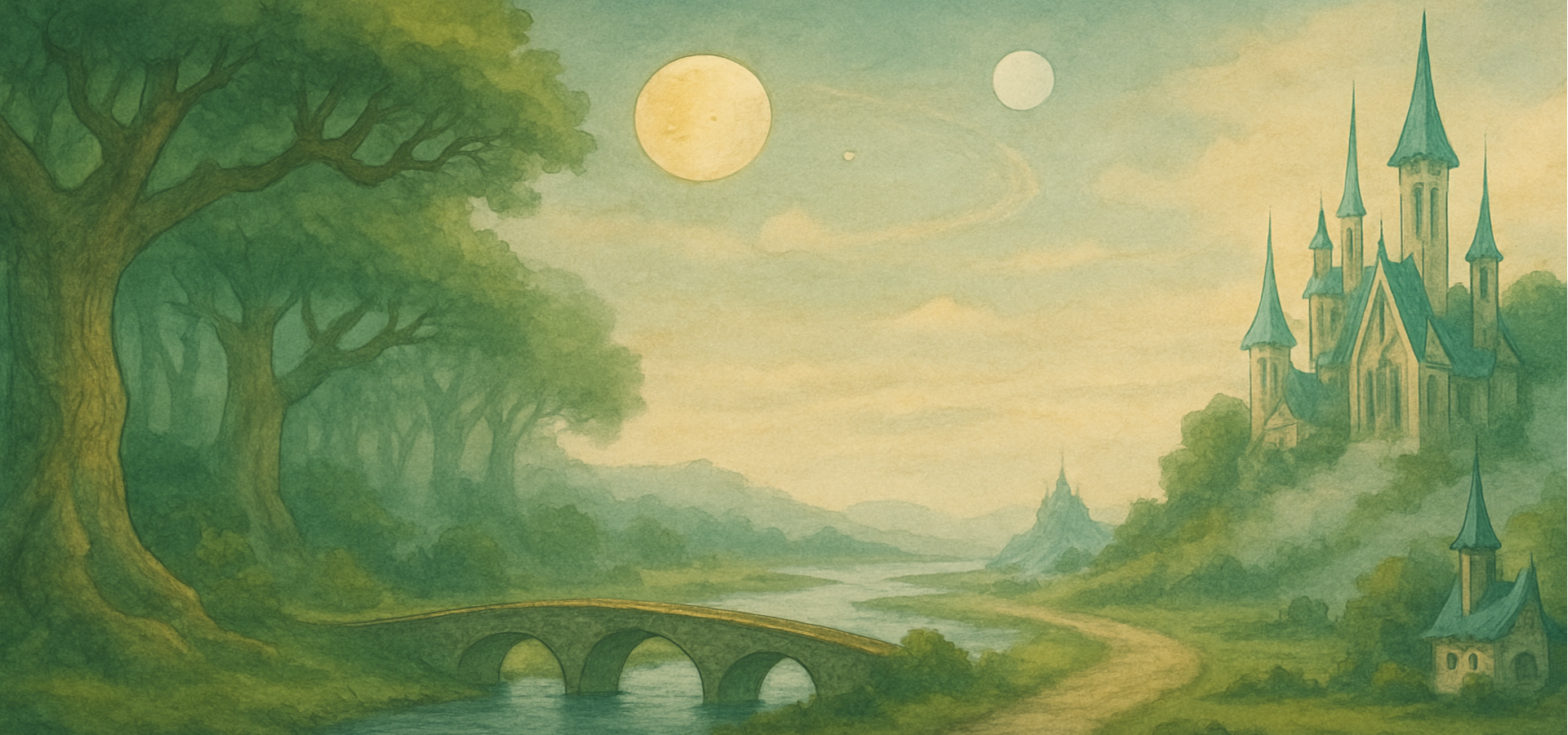The Rolfgari Diaspora
The Rolfgari are descendants of the ancient dwarves who fled the fall of their kingdom after its collapse. Though they lost almost everything, their traditions, language, and crafts were carried into the world, woven into the bones of modern civilization.
The diaspora is now found in every corner of the known world. They came as refugees but gradually integrated themselves into each region.
Too exhausted to claim a new homeland by force, and shaped by the belief that power lies in cooperation, they approached the indigenous sentient species with a helping hand, offering their knowledge and craftsmanship in exchange for a place to live. They never submitted to slavery. Instead, they taught the peoples of other lands to trade, turning services, goods, and land into commodities of value. Thus the Rolfgari gained a serious advantage, as everything they touched became gold. Their advanced understanding of societal structure, agriculture, smithing, stoneworking instantly upgraded every place they would settle in. Therefore they became sought after and often close consultants to the tribal chiefs or other leaders.
Culture
Major language groups and dialects
There is no complete record of all dwarven dialects, but early research suggests that they stem from a shared root, often called Proto-Dwarven.
The original Rolfgari dialect has been lost to time. As a highly adaptive people, the Rolfgari adopted the common tongues of the lands they migrated to. While many still speak a form of their ancestral language, it has absorbed elements from surrounding cultures. Even the names of ancient figures are now remembered in translated form.
Even so, many modern-day place names, artifacts, and technologies still bear traces of the original Rolfgari language.
Culture and cultural heritage
Many Rolfgari dwarves still keep relics of their fallen kingdom; objects with no practical use but immense symbolic weight. These heirlooms are reminders of what was built, and what was lost, in the pursuit of unity and self-determination. Once part of something whole, now fragmented pieces, they symbolize the diaspora itself.
Shared customary codes and values
Rolfgari customs are derived from the ancient codified laws of Rolfgar. For example, relationships between close kin are strictly forbidden, and property is sacred, passed down by the owner’s will. These customs, once foreign to places like Doriande, were gradually adopted and absorbed into broader cultural practice.
Average technological level
The Rolfgari were once among the most technologically advanced peoples. Though they escaped with almost no tools or other equipment, they carried their knowledge and used it to teach others. Over time, their innovations in tools, construction, and engineering helped shape wonders of engineering such as the Waygate wall.
Art & Architecture
Rolfgari architecture is bold, yet refined. It favors strong lines, clean surfaces, and ornamental work in precious stones. Their monumental style adapts to local conditions, but always carries its distinct geometric identity.
Common Customs, traditions and rituals
Every true Rolfgari is expected to show hospitality and contribute to their community throughout the year. Though the traditional model of multigenerational households has faded, replaced by independent family homes that blend more easily into broader society, Rolfgari dwarves still view themselves as part of a greater whole; the living thread of a scattered but enduring legacy.
Once every year, during the month of Sleep the Rolfgari come together for a communal gathering that serves as both remembrance and renewal. This assembly is held in village halls, carved chambers, or sacred clearings wherever the diaspora resides. During this ritual, the story of their origin is retold to the young, preserving the memory of the fall of Rolfgar and the forging of the first kingdom. Elders convene to discuss matters of importance: the state of the community, rites of passage completed by young adults, and the wellbeing of their people in the year ahead.
It is also a time when honors are bestowed. Local heroes, inventors, and guardians of tradition are recognized before all, their names added to the memory rolls. The gathering during Sleep is not only a reflection on loss but a reaffirmation of shared purpose.
Coming of Age Rites
Every Rolfgari youth must complete either a pilgrimage or serve as an apprentice before they are recognized as a true heir to the Rolfgari legacy. Upon completion, they are gifted a keepsake fragment, often a sliver of stone or metal said to be from the ruins of Rolfgar. This token is to be passed down to their descendants, unbroken if possible
Funerary and Memorial customs
Rolfgari are never cremated. Instead, they are buried in the earth from which they came, facing toward Rolfgar. A large, carved stone bearing the Unity Sigil is placed over their grave, letting everyone know that within it lies a true descendant of the ancient dwarves.
Common Myths and Legends
Dwarves across the world tell the same story of their origin: they are the heirs of Svargan’s will, born from the navel of the world, Mount Rolfgar.
Twenty tribes flowed down its slopes like molten stone, building settlements above and below the earth.
There, they fought for their right to dwell in their father’s land, clashing with his older creations.
The wars raged for generations, until one dwarf rose to unite them into a single kingdom.
But the First Kingdom lasted only a moment, measured in dwarven time.
An orcish cult, sworn to a to an ancient sleeping power, laid siege to the mountain. For two years, the dwarves held firm, but they did not know that the orcs were digging toward something ancient and terrible. Beneath their feet lay the being who would doom them all:
the one name every Rolfgari remembers. The Heinous One.
Historical figures
Baen Pummeltongue, the legendary king of old, is the most revered figure in Rolfgari history. Though younger generations may forget his name or soften its sound, his story remains, and his legacy is felt in daily life, even far from the shadow of Rolfgar.


Comments